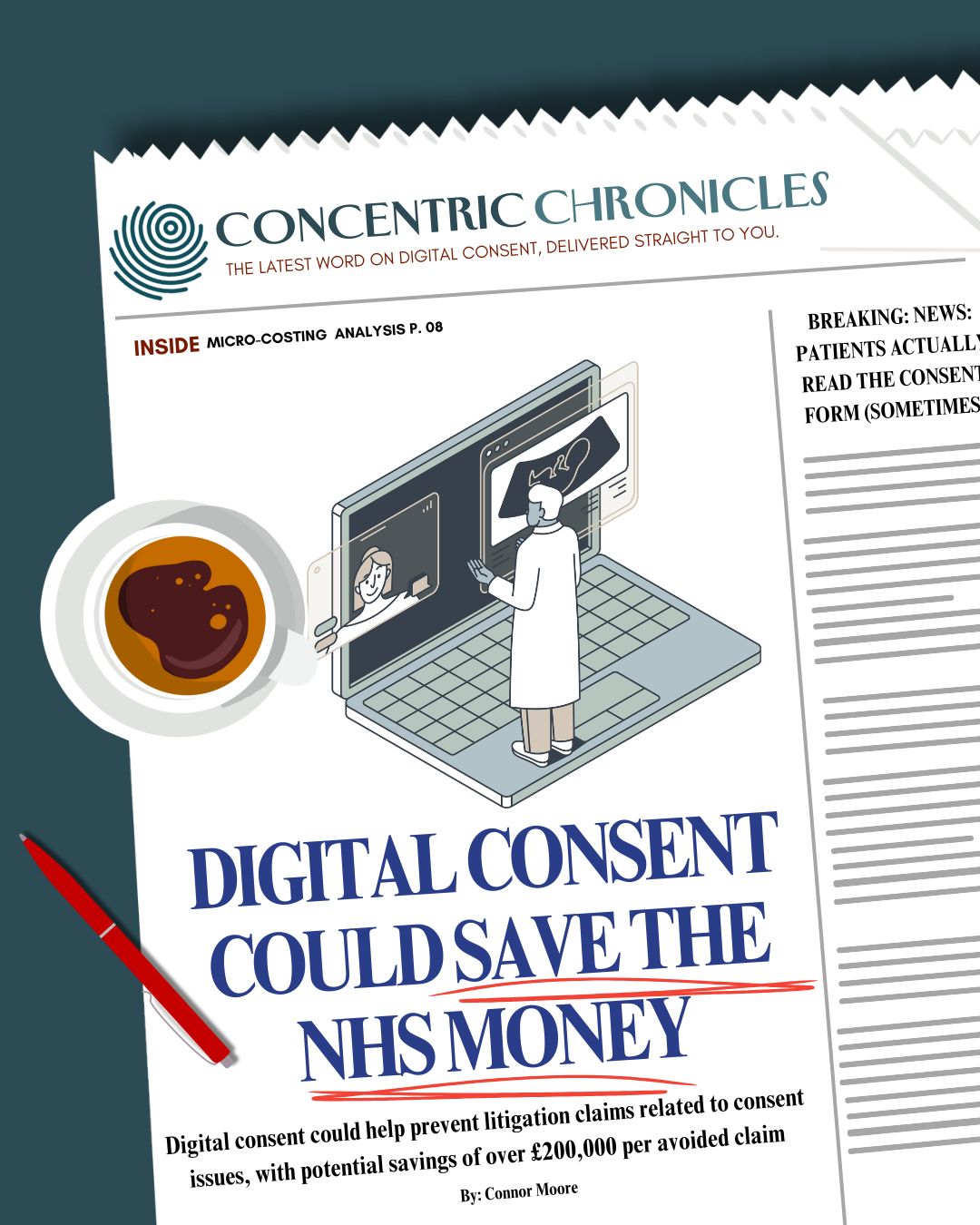
Published in ‘PharmacoEconomics - Open’, a journal for research on the economic implications of healthcare interventions, ‘Digital Versus Paper-Based Consent from the UK NHS Perspective: A Micro-costing Analysis’ provides compelling evidence that digital consent could deliver cost savings for NHS hospitals while improving the quality of the consent process.
The detailed micro-costing study, led by researchers from QC Medica, in collaboration with Portsmouth Hospitals University NHS Trust and Concentric Health, explores the economic impact of switching from traditional paper consent to digital solutions.
Key findings
- Digital consent pathways cost approximately £0.90 less per consent episode compared to paper-based pathways
- The greatest potential savings come from eliminating paper form ordering, printing, storage and transport costs
- Digital consent could help prevent litigation claims related to consent issues, with potential savings of over £200,000 per avoided claim
- Even hospitals with low digital maturity could see cost benefits from implementing digital consent
Impact on the consent workflow
The researchers conducted extensive interviews with clinicians and administrative staff to map out every step of both paper and digital consent pathways. They found that while paper consent requires multiple manual steps - from ordering and printing forms to physically moving them between departments - digital consent streamlines these processes significantly.
The study identified that consultation duration had the biggest influence on overall costs. Each minute saved in consultations using digital consent would add £2.35 in savings. This highlights the importance of ensuring digital consent tools are efficient and user-friendly.
Digital maturity considerations
One of the key concerns around implementing digital consent is the required infrastructure. The study explored different scenarios based on hospital digital maturity:
- Semi-digitally mature departments (needing minimal new hardware)
- Less digitally mature departments (requiring some additional equipment)
- Digitally naive departments (needing comprehensive hardware setup)
Importantly, cost savings were identified across all scenarios, ranging from £0.90 to £0.72 per consent episode, even after accounting for necessary hardware investments.
Looking to the future
As the NHS continues its digital transformation, this research provides timely evidence that digital consent is not just about improving quality - it can also deliver financial benefits. The study authors note that while the savings per consent episode may seem modest, these add up significantly across the thousands of procedures performed at each healthcare organisation annually.
The research also highlights the potential for much larger savings through prevented litigation claims, with data showing an average of £201,590 could be saved per prevented claim.
“Digital consent has the potential to introduce an alternative way of obtaining consent and streamline the pathway without increasing costs to the hospital,” note the researchers. They emphasise that while digital tools can facilitate the process, they should enhance rather than replace the crucial dialogue between clinician and patient.